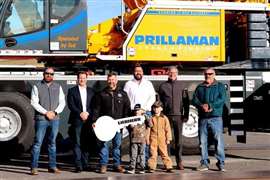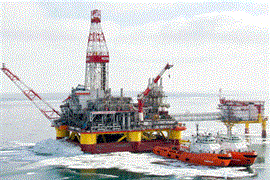Genie Stage V engines feature ‘smart’ technology
21 July 2020

Genie has announced new ‘smart’ technology on its Stage V engines that features regeneration technology designed to alert operators that regeneration is needed — well in advance of the engine requiring it, the company said.
“In addition to the required features of the new Stage V engines, the Genie Stage V engine solution utilizes proprietary, easy-to-use new ‘smart regeneration’ technology that proactively monitors the progression of soot build-up in the engine’s DPF,” said Corrado Gentile, Genie product manager, Terex AWP. “Only available with the Genie Stage V engine solution… this feature gives Genie equipment owners and operators the peace of mind of knowing that they do not have to worry about how to manage the regeneration process on Stage V engines — we’ve made it so that the machine does it for them.”
Stage V emission regulations address the growing need in Europe for off-road engines to be more environmentally friendly with a cleaner burning engine that emits less particulate matter or pollution into the environment, enhancing quieter operation and reducing vibration.
Currently in production to meet this Stage V engine standard, new Genie articulating or telescoping boom lifts and Genie rough terrain scissor lifts are equipped with a turbocharged, 3-cylinder, water-cooled 2.2 L Stage V diesel engine. New Genie telehandlers are equipped with a 4-cylinder turbocharged 2.9 L Stage V diesel engine. Exclusive to the Genie Stage V engine solution, these engines feature innovative, operator-friendly technology that safeguards the engine and its components, as well as simplifying maintenance tasks, without any compromise to the machine’s power, performance or productivity.
Genie said the engines are also designed to run quieter, reducing real total engine noise output and presenting a smoother engine tone. To achieve the result, Stage V engines now include DPF (diesel particulate filters), a component that requires occasional cleaning through a process called regeneration. Passive regeneration occurs automatically when engine temperatures are high and soot levels have increased. During this process, the operator may notice only a slightly higher engine speed, but no noticeable degradation in performance.
For active regeneration, this is where the Genie technology comes into play, which to date is the only one that, thanks to four different levels of alerts, allows operators to plan the start of the regeneration cycle at their best moment in order to maintain their productivity and minimise downtime, as well as reducing the risk of DPF damage.
According to Gentile, the new Genie Stage V engine solution with smart regeneration technology has four active alert levels:
• Level 1: High soot levels (100 percent) have been reached, time to schedule a regeneration cycle.
• Level 2: Slows down the hydraulic boom functionality speed by 30 percent; only allows “turtle” speed and blocks multifunction operations.
• Level 3: Slows down the hydraulic boom functionality speed by 60 percent; only allows “turtle” speed and blocks multifunction operations.
• Level 4: Stowed functions disabled; the machine will only allow “turtle” speed.
“Genie has already started producing machines with Stage V engines in order to allow our customers to comply with strict emission regulations as soon as possible,” says Jacco de Kluijver, Genie vice president of sales & marketing, Terex AWP, Europe, Middle East, Africa and Russia region (EMEAR). “However, in the EMEAR region, environment-friendly requirements are different depending on the country and Genie is there to adapt to these variations. For customers who do not wish or yet need to update their fleet, Genie will offer, while stocks last, a dual supply of engines. Not to forget that we are still providing machines with Stage IIIA engines for the Middle East region and some African countries, where these new emissions standards are not applicable.”
Gentile added, “Our technology allows operators to select a convenient time to run a regeneration cycle after the first alert is received, minimising downtime and mitigating the risk of issues with the machine.” He adds that Genie equipment owners and operators can also check the soot level and configure alert levels for their Genie Stage V engines via the Genie Lift Connect telematics solution, enabling them to know the real-time status of the DPF’s condition.
Operators will be able to identify machines equipped with the new Genie Stage V engines via a label with a Stage V decal on the engine cover. This decal includes a QR code that links to a certificate, enabling operators to show proof that the Genie machines meet all the requirements of the new European (EU) emissions regulations.


